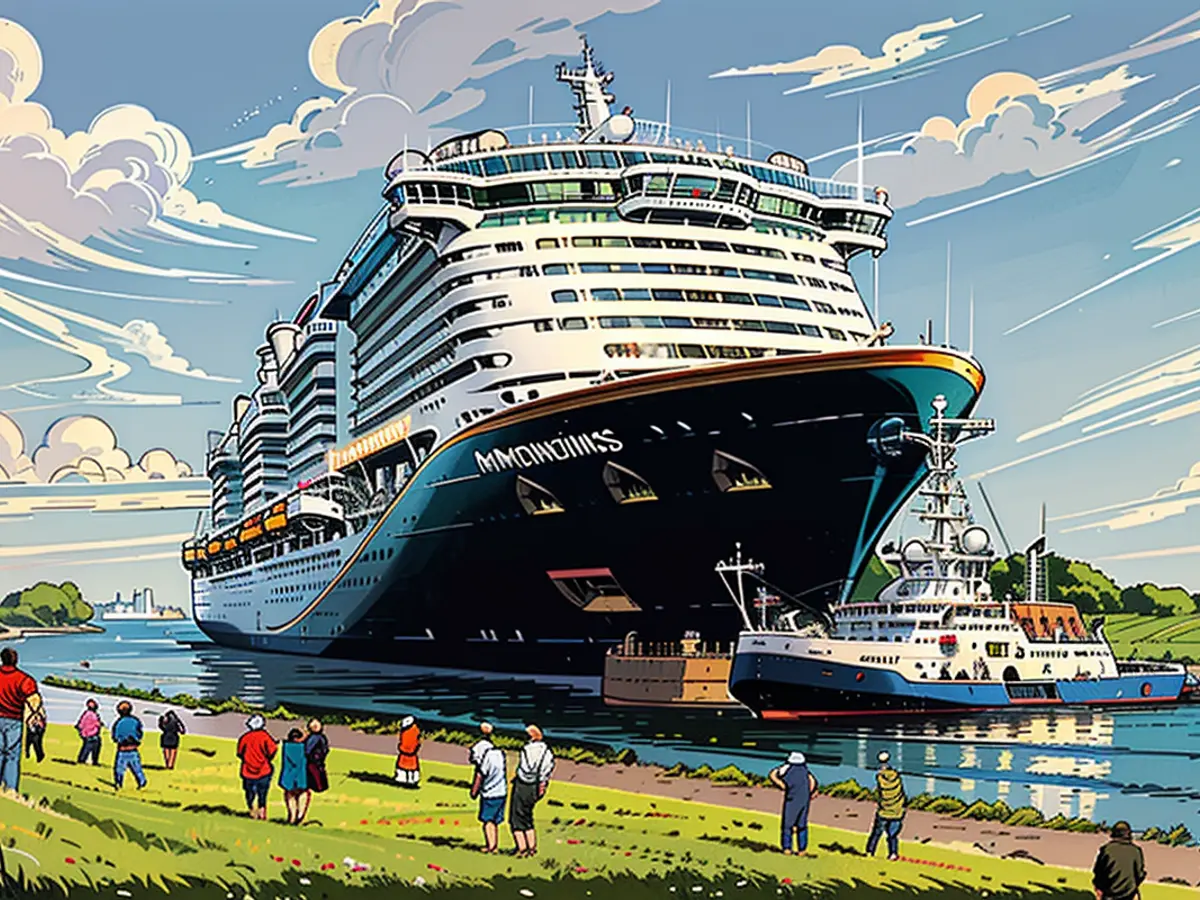Billion-dollar poker for Meyer Werft
Despite a full order book, Meyer Werft is in financial distress. Thousands of jobs in Lower Saxony are at risk. Minister-President Weil advocates for state aid, but the company's leadership must "accommodate legitimate concerns of the state."
The cruise ship and naval industries are booming. Warships and cruise line conglomerates are placing numerous orders for new ships. At Meyer Werft, the order books are full. However, the company is facing acute financial difficulties at its sites in Papenburg, Rostock, and Turku, Finland. The yard needs 2.7 billion Euros to overcome the "existential crisis" identified by Niedersachsen's Minister-President Stephan Weil. Weil would like to help with state funds to save thousands of jobs in his federal state. However, the politician sets conditions - for the company and the federal government.
The money is lacking for the yard, among other reasons, because contracts for the construction of cruise ships signed years ago did not account for significantly increased costs. Additionally, shipping companies typically pay only a small down payment for ships worth hundreds of millions of Euros. The yard must finance the bulk of the purchase price.
Meyer Werft's main site in Papenburg on the Ems is an essential economic factor for Lower Saxony. 3000 of the 7000 employees of the yard group work here. According to Weil, "many thousands of jobs" depend on the yard beyond its workforce and Lower Saxony.
Therefore, Weil wants the state to intervene. "If we have good reasons that the company has a prospect, we will strongly advocate for this future. We do this because we want to save jobs," said the head of government. However, the company must relocate its headquarters from Luxembourg back to Germany. The SPD politician stated that this step is a requirement for state aid. "Yes, that's how we see it," he said. It involves significant public funds. "Then we must demand that the owners accommodate legitimate concerns of the state," said the politician. The decision to relocate the headquarters to Luxembourg was made by Meyer Werft in 2015 to avoid having to establish a supervisory board. In a supervisory board, shareholders and employees of a company are equally represented.
Economist: State aid is not a subsidy
Confidential talks are ongoing between the company and the federal government, and future viability assessments for the yard are being prepared. "It's clear: The federal government must engage if the rescue is to succeed," demanded Weil. In addition, agreements with banks are required, and it is essential to know how the customers stand towards the company. "All negotiations are running at full speed," said Weil. There is not much time left for a decision given the financial pressures on the company. "We must act quickly to know where we stand together," said the Minister-President. Reports indicate that several models for aid to Meyer Werft are being considered, such as a guarantee or an equity injection by the state into the company.
Economist Jens Sudekum endorses such help. Meyer Werft is an "entrepreneurial business with a healthy business model." If the state were to temporarily participate there, this would not be a subsidy. "It is an equity investment, a guarantee, for which the state also receives money," Sudekum told ntv. The goal should be that the state "can exit with a profit after a few years."
Stephan Weil, the Minister-President of Lower Saxony, is advocating for state aid to help Meyer Werft overcome its financial difficulties and save thousands of jobs in the region. Despite the booming cruise ship and naval industries, Meyer Werft is facing acute financial struggles due to increased costs and unpaid down payments from shipping companies.
To secure state aid, Meyer Werft's leadership must relocate its headquarters back to Germany, as per the condition set by Minister-President Weil. Economist Jens Sudekum supports this aid, viewing it as an equity investment rather than a subsidy, with the ultimate goal of the state exiting with a profit after a few years.








